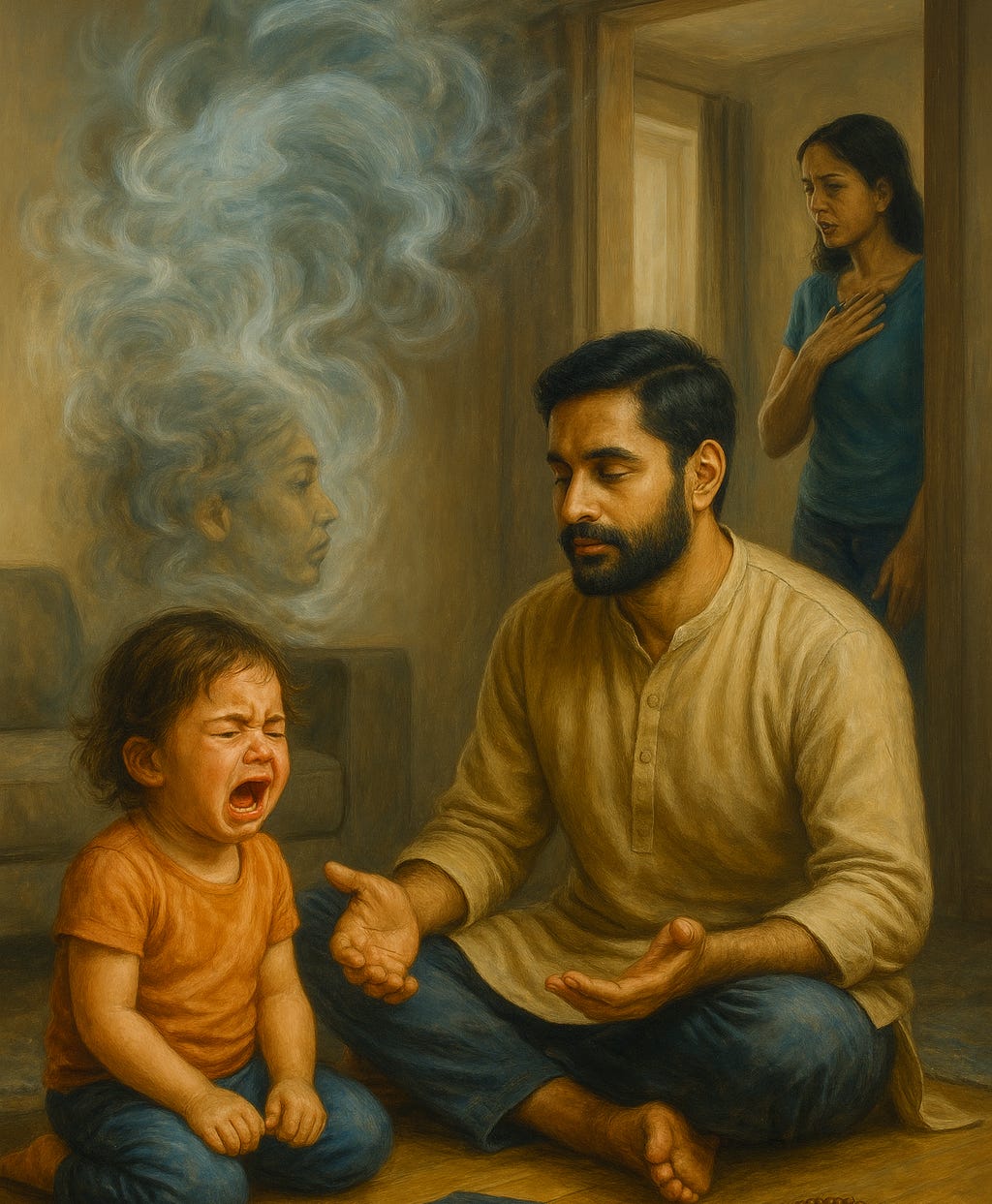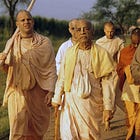Observing the workings of the mind
Something very important we can learn by taking care of children, which is essential in relationships in general, is to be able to observe the mind acting in another person without being affected by i
Something very important we can learn by taking care of children, which is essential in relationships in general, is to be able to observe the mind acting in another person without being affected by it.
A child is, in one sense, not different from an adult. A child has desires and emotions, just like an adult does. The only difference is that the intelligence of a small child is not very developed, and in this way, a child is not capable of filtering these desires and emotions like an adult can. A parent, thus, has to learn to deal with the child without being affected by these fluctuations, being able to remain in control of one’s emotions and use one’s intelligence to gradually teach and educate the child.
A parent understands that the child doesn't do things out of malice; it is just the mind working. A parent thus learns to keep his cool and deal with it in a sober way, using his own intelligence to find the underlying problems and figure out how to solve them. This is what it means to be an adult in the first place. We keep our cool and don't take things personally.
This is also very useful in other relationships because very few people can remain in control of their emotions all the time. Most just break down from time to time and become again a child, crying and screaming for whatever reason. If we become affected by that, we also get caught up in the same trap, and it can very quickly degenerate into quarreling, shouting, and screaming. If we can remain in control of our emotions, we can peacefully analyze the situation, understand the underlying problem, and figure out how it can be solved.
Being able to remain rational in situations of stress is not something we are born with, but it is something we can develop. We were all small children once, crying and screaming like all small children do. However, we gradually learn to control our emotions, at least to some degree, and by careful introspection and detachment, we can gradually learn to also deal with the emotions of others, without taking things personally. This is one very important skill in all kinds of human relationships, starting from married life.
Learning to observe the minds of others helps us to develop another very important skill, which is to observe the workings of our own minds. Because of the influence of material illusion, we identify with the workings of the mind, accepting the feelings and desires of the mind as our own. By this process of observing the mind, we finally come to understand that the mind is a separate being. Just like we are not the body, we are also not the mind. The mind is just a voice inside our heads, and at every step, we have the option of listening to it or not.
If you read this article to the end, give it a like or write a commentary. This makes Substack recommend it to more people.
Read also:







Thank you for the article, Prabhu jee.
I always struggle to understand (may be it is not something you can intellectually understand?) that my mind is a separate thing. I can see that I am not the mind but it is my mind, right? Similarly others will feel like it is their mind and so on. Is it all one mind? Is there a good analogy to understand this?
Other question is about the sense of I. When you say that I can choose not to identify with my mind, that sense of I is also coming in my mind. I can pretend to practice this once or twice in the morning but everything seems to happen inside the mind so it is hard to maintain the distinction.
Can you please share some light into this?🙏
Prabhuji very great article